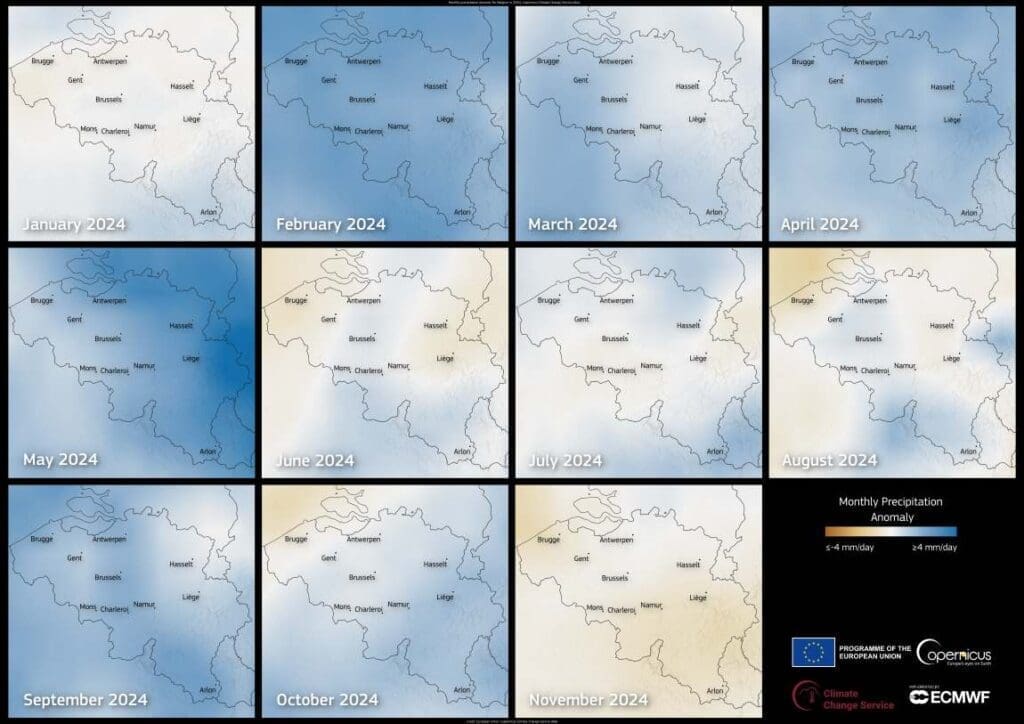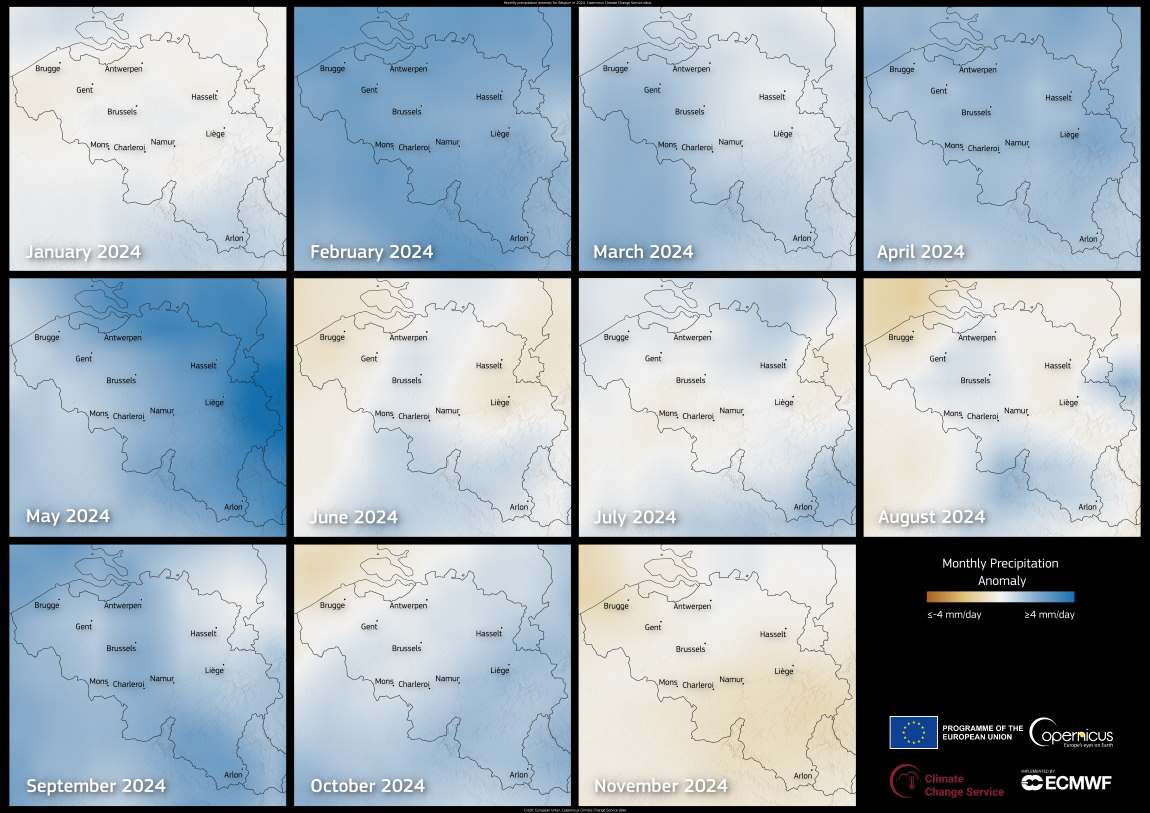Belgium experienced an extraordinary year of rainfall in 2024, marking its wettest year on record.
Data from the Copernicus Climate Change Service (C3S) tracks monthly precipitation anomalies, with May seeing significantly higher rainfall, while November was the first month with below-average precipitation compared to the 1991–2020 reference period.

Climate Bulletins from C3S also show that northeastern Belgium recorded an unusual amount of rain during spring. These findings align with data from the Royal Meteorological Institute of Belgium (RMI), whose Uccle station reported a total of 1,092.9 mm of precipitation by November 27 – breaking the previous annual record of 1,088.5 mm set in 2001.
This data emphasizes the need for continued monitoring of Essential Climate Variables, a focus of C3S efforts in tracking climate trends. The detailed records from C3S and RMI help deepen our understanding of extreme weather patterns and their implications.
Featured image credit: European Union, Copernicus Climate Change Service Data




